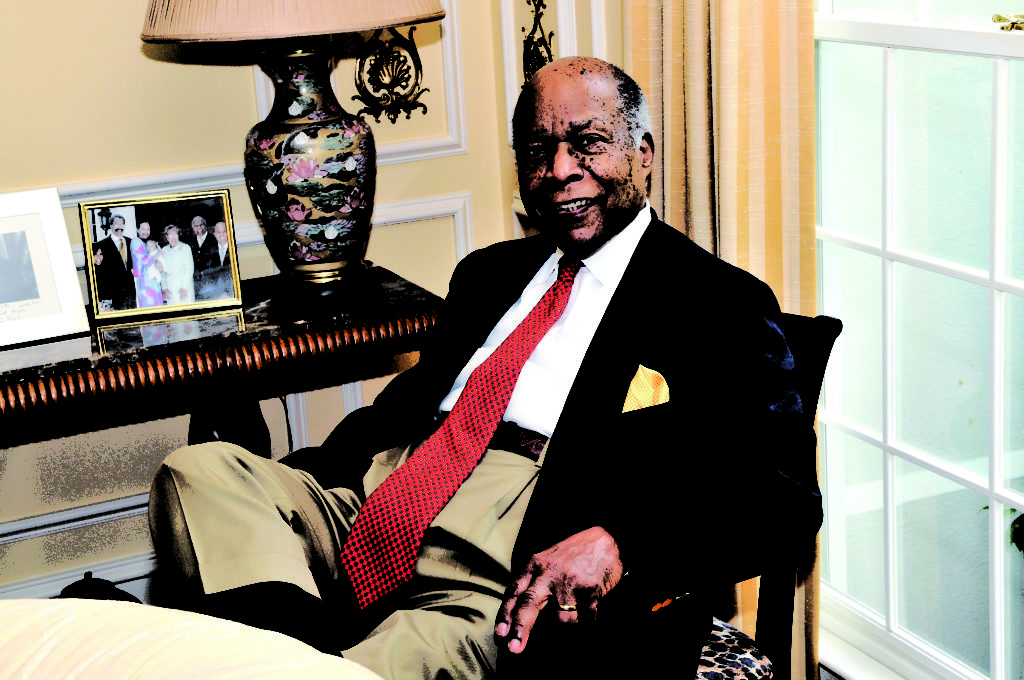Last year, a study with unexpected findings was released with the line: “Weaker nations prevail in 39 percent of military conflicts.” That headline grabbed the attention of policymakers and pundits in Washington, D.C., who were bogged down in the debate over what to do about Iraq.
Conducted by Patricia L. Sullivan, an assistant professor in the School of Public and International Affairs’ department of international affairs, the study investigated every instance in which one of the five permanent members of the U.N. Security Council used military force abroad since the end of World War II. Despite their overwhelming military might, the United Kingdom, France, Russia, China and the U.S. failed to achieve their objectives in
39 percent of the conflicts they fought against weaker opponents.
According to Sullivan’s research, military might alone is not a constructive predictor of war outcomes. Instead, the most important factor influencing whether a powerful nation will prevail is the degree to which attaining its war aims require the cooperation of the adversary.
Sullivan found that the five permanent members of the Security Council won 75 percent of conflicts in which their aims did not require the cooperation of their opponents, but less than
50 percent of the conflicts in which they needed cooperation.
In explaining the circumstances under which more powerful nations are likely to fail, she created a model that can be used to calculate the likelihood of success in conflicts.
After testing, Sullivan’s model proved to predict accurately the outcome in 80 percent of the 122 conflicts studied.
As a middle-class Catholic girl from Texas, Sullivan enrolled in Santa Clara University thinking she might like to study psychology. Her sophomore year, she encountered a Jesuit priest teaching a course called Faith, Justice and Poverty.
She can’t remember whether the grade was a “D” or “F”. But she remembers that her first paper was covered with comments about her “weak argument” and “narrow worldview.” Sullivan recalls being outraged thinking the professor had given her a low grade because he disagreed with her argument that violence was never justified.
The class turned out to be life-changing.
“I realized that I had very limited exposure to other realities and worldviews,” Sullivan said. “How could I make moral arguments about what was right in situations so desperate I could hardly imagine them?”
She began taking an interest in current events-following and studying military conflicts. Eventually, Sullivan changed her major to political science.
After graduating, Sullivan volunteered in El Salvador immediately after its civil war, which claimed more than 70,000 lives. Most of the victims were peasants, but the count also included clergy, journalists, church lay workers, students, aid workers and anyone perceived as an opponent of the Salvadoran military government, which was silently supported by the U.S.
Sullivan went door to door in a small village interviewing residents about their experiences during the civil war.
“I was struck by how calmly the refugees talked about the horrible atrocities and massacres perpetrated by the government and paramilitaries,” she said.
She was astounded to learn of the role of the U.S. in providing funding and training for the S
alvadoran military. It was an experience that pressed her to learn more about the use of military force and the role that U.S. military aid plays abroad.
Like the Jesuit priest who dealt Sullivan a poor mark, Sullivan encourages debate in the classroom by pressing students to look at issues from every vantage point.
Sullivan doesn’t just teach a lesson, according to former student Yael Miller, who said, “Professor Sullivan’s multi-faceted approach to every issue ensures that all of her students understand every aspect and nuance of a topic.”
FACTS
Patricia L. Sullivan
Assistant Professor
School of Public and
International Affairs
B.S. Political Science, Santa Clara University, 1993
M.S. Student Affairs in Higher Education, Colorado State University, 1996
Ph.D. Political Science, University of California-Davis, 2004
